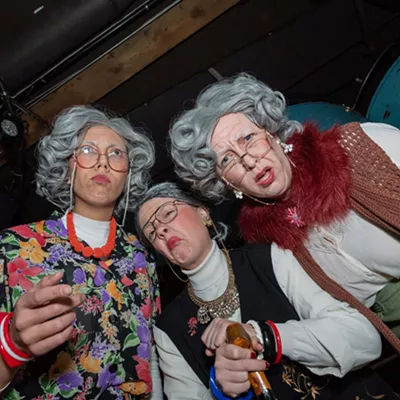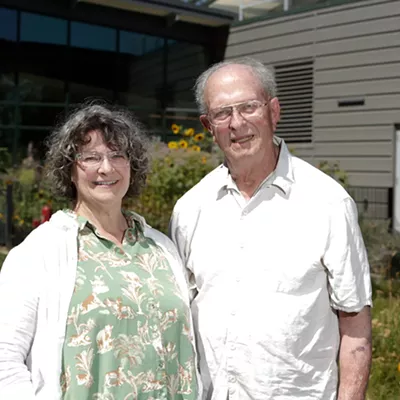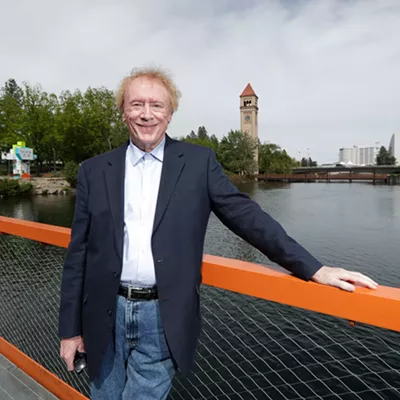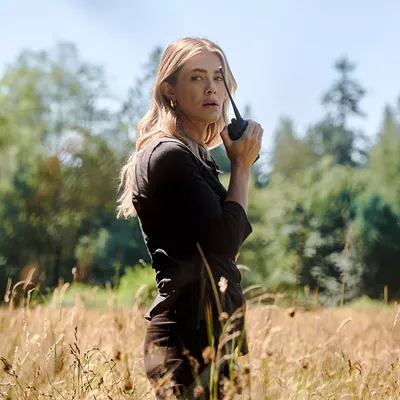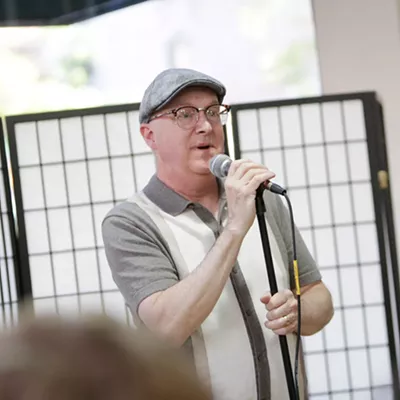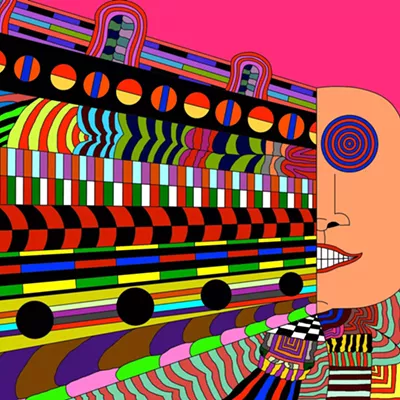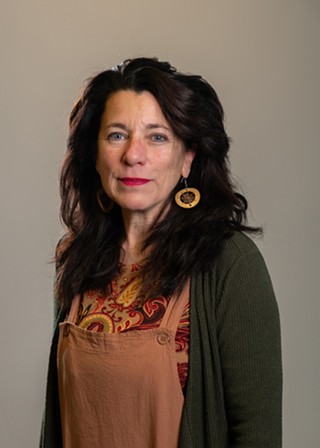
Rafael Cárdenas' mother wanted him to be a priest, but the young boy from western Michoacán, Mexico, had other ideas. Although he had a heart for serving the community and was a scripture reader during Sunday Mass, Cárdenas aspired to be an engineer or some similar profession.
In a way, mamá prevailed.
The best part of his job as a radio DJ is connecting and encouraging people, says Cárdenas, who spent nearly 30 years with various all-Spanish language radio stations in Tri-Cities. In July 2020, he helped launch the Spokane-based Spanish-language radio station Ke Buena, and is its main DJ.
Ke Buena is colloquial for "that's a good one," according to Ben Reed, who manages the station out of his southern Idaho home and whose distinct baritone can occasionally be heard on the air.
Broadcasting at FM 95.7 and AM 1330, Ke Buena is the Inland Northwest's first truly local commercial Spanish-language radio station, but not the first such estación de radio in Spokane. From 2014-2016, KMBI broadcast in Spanish – coincidentally on the same frequency as Ke Buena – with content originating from its nonprofit owner, Moody Bible Institute. KMBI eventually became the rock station KYOZ, or OZ 95.7, but when that station folded in June 2020, it opened the door for new ownership and a new format.
Ke Beuna is a mix of locally produced and syndicated programming. On the weekends, for example, Cárdenas hosts La Voz del Pueblo, or "The Voice of the People," from 10-11 am. It's co-sponsored by two local outreach organizations, Mujeres in Action (Women in Action) and the Comunidad Cristiana de Spokane (Spokane Christian Community) church. A third of the hour is also available — free — for local organizations, such as Latinos en Spokane and Spokane Association of Hispanic Business Professionals, whose message is geared toward the Spanish-speaking community.
Following Cárdenas' weekday morning show, Ke Buena fills the airwaves with syndicated programming. MLC Media's La Numero Uno from 10 am-2 pm is mostly contemporary Mexican music, while from 2-7 pm, Hispanic entertainer Oswaldo Diaz embodies three radio personalities for the popular humorous broadcast from Entravision called Erazno y La Chokolata.
During the day listeners within roughly 60 miles of the Spokane transmitter should be able to hear both the FM and AM broadcast, which is also available online at kebuena957.com. At night, Ke Buena's AM signal and coverage drops to around 10 miles in any direction.
Before launching Ke Buena, Reed says, research revealed a growing Spanish-speaking market in the Inland Northwest. Census data, Nielsen reports and other sources suggested that potentially 50,000 people within listening range of Ke Buena speak Spanish, says Reed, who grew up speaking Spanish in Arizona.
In many Latinx communities, radio is culturally more important than in other communities, Reed says.
"It has the same pull it did with Anglos 40-50 years ago," says Reed, who hosted a radio show while living in Argentina, and lived, taught and earned a theology degree while living in Mexico, where he maintains dual citizenship.
"His Spanish is perfect," says Cárdenas admiringly of Reed, whom he met in 2015 when Cárdenas was a DJ at a Tri-Cities station known as La Ley.
Then as now, both men are better known by their nicknames. Reed is el Chupacabra, the mythical creature alleged to suck the blood (chupa) of livestock, including goats (cabras).
Cárdenas' nickname has also been the name of his radio shows: Pichakuas, a word beyond the abilities of Google translate (and this writer).
Fortunately, we are meeting at Marando's Bar & Restaurant, where Cárdenas and some friends are waiting for the World Cup soccer qualifier between the U.S. and Mexico to start (U.S. won the game). Marando's co-owner, Mario Ruiz, provides an assist: As Cárdenas makes a hopping motion with his hand, Ruiz explains that pichakuas relates to a happy bird.
Cárdenas earned the nickname as a foreman in Central Washington's apple orchards, where he'd worked during the mid-1980s. He'd hoped to earn enough money to return to Mexico, but instead found his voice as an advocate for Spanish speakers and culture.
He marched with activist Cesar Chavez (Martin Luther King is another of his idols) and became involved in local radio, first as a volunteer, then as a paid DJ in 1991 with KDNA in Tri-Cities. He worked at several more stations, including La Reyna. And he's spoken up about treatment of undocumented workers.
"Some people are scared of public speaking," says Cárdenas, "but I like it."
So every weekday morning, he's up well before dawn to greet listeners on El Show de Pichakuas, from 6-10 am. He plays music, and reads the weather, traffic and local headlines. He also shares a daily motivational reading.
"That's my favorite thing," says Cárdenas. "I like to help people, lift them up." ♦





